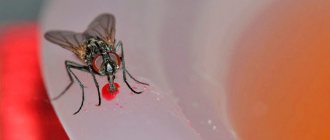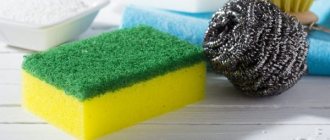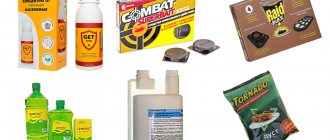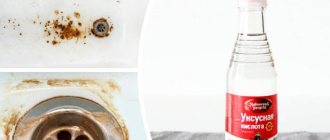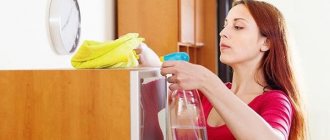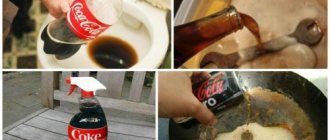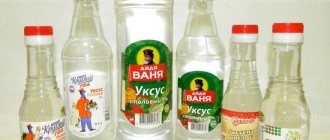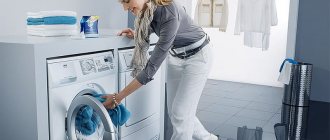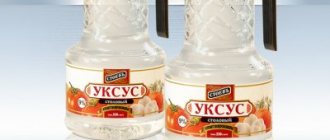Do we really need all the detergents stored in our kitchen and bathroom to clean our apartment? Those who care about the environment believe that... one is enough. The composition for washing and dishwasher can also be as simple as possible - and homemade. This is what Zero Waste activist Bea Johnson uses to do laundry, wash dishes, and clean any surface.
Over the years, marketing campaigns have managed to convince us that different household tasks require different means, and this has made our life incredibly complicated. Now we have some bubbles in the garden shed, others under the kitchen sink, and others next to the washing machine, all equally poisonous and expensive.
But our grandmothers had one powerful remedy for all occasions. Harmless and inexpensive, it cleans any surface, disinfects, and removes odors and grease. In the bathroom it will wash away mold, limescale and soap residues, during washing it will get rid of stains and soften laundry, and in the garden it will repel pests and weeds. I mean…
Vinegar for all occasions
Alas, I have never found bottled vinegar and take it in a glass bottle, but I consider it an indispensable product for caring for the home and garden. For most cases, the same basic composition is suitable.
Vinegar Cleaner Recipe: Mix water and white vinegar in a 4:1 ratio in a spray bottle. For flavor, you can steep vinegar on citrus peels for several weeks.
How to use a vinegar solution for cleaning, laundry and gardening?
Alaminol
Those who have used this product to combat shoe fungus leave mostly positive reviews. Pathogenic microorganisms die, and the smell of the product is quite tolerable.
Purchase Alaminol in pharmacy chains or stores selling medical equipment. It is better to stock up on a 5% solution.
The product is poured directly into the shoes, then rinsed under running water and aired for 2 hours. Then the rinsing procedure with water is repeated again.
Then you may just need an electric dryer to finally dry the boots and shoes washed with Alaminol and water.
This drug allows you to forget about the problem of shoe fungus for a long time. And if you treat your feet (or your entire body) at the same time, the effect will be even longer.
How to clean your kitchen with vinegar
Undiluted vinegar will disinfect cutting surfaces. It will also replace the composition for cleaning stainless steel and dishwasher rinse aid (just pour it into the appropriate compartment of the dishwasher).
For the sink, countertops and refrigerator, use the basic compound and an old toothbrush. To eliminate odors and clean the inside of the microwave , bring it to a boil.
The stove will be clean if you sprinkle it with vinegar, sprinkle baking soda on top, leave it overnight, and scrape it with a scraper the next day.
To get rid of scale in a kettle and coffee maker , boil water in them with the addition of a quarter glass of vinegar. To remove tea or coffee stains from dishes, soak them in vinegar for a couple of hours and wipe off the remaining residue with baking soda.
Pure vinegar will remove any unpleasant odors from your hands, food containers and trash cans.
Cleaning windows and mirrors
Today there are a large number of glass cleaning products that can be easily purchased at retail stores, but this can also be done effectively with vinegar. You will need 2 tbsp. spoons of vinegar per 1 liter of water and newspaper to wipe the glass dry. You can replace vinegar with lemon juice or soda. These products are also good for cleaning windows and mirrors when you don’t want to use vinegar because of its strong smell.
How to clean a bathroom
In the bathroom, the main composition will remove limescale , soap traces, and clean the countertops, floors, sinks, mirrors and metal products to a shine. Use it to pour the shower drain overnight to get rid of any dirt stuck there. And if you moisten an old toothbrush with the mixture and rub the grout between the tiles, it will become as good as new.
Straight vinegar will clean off mold on most surfaces and prevent it from growing. To prevent your bathroom curtain from molding, wash it with vinegar and treat the problem parts with it.
When cleaning the toilet, spray vinegar and scrub. Moisten traces that are difficult to remove with vinegar, sprinkle with baking soda, wait until the foam settles, and rinse.
To unclog a pipe , first use a plumbing cable and a plunger, and then successively add a quarter cup of baking soda and half a cup of vinegar. Wait until the foam subsides and add boiling water.
Tips for using cleaning spray
- Spray the product, leave it for a few minutes, and then rinse or wipe off, for example, with a damp sponge or natural cloth.
- For a deeper clean and removing stains such as shower rust, leave the cleaning spray on for 10 minutes.
- You can also add a little solution to the washing machine when washing covers removed from patio furniture or a rug lying by the front door. You can even wash windows with this solution, then you just need to rinse it off with water.
Vinegar for cleaning the apartment
To get rid of unpleasant odors (paint, smoke, tobacco, etc.), ventilate and place a bowl of vinegar in the room to absorb the odors.
To clean the floors, use the basic composition and a microfiber mop. A mixture of four liters of water and a glass of vinegar will help to wash and shine linoleum.
Remove stains from walls: traces of pencil, pen, crayons and even nicotine can be wiped off with a rag or brush dipped in pure vinegar.
To clean the upholstery: to remove odors, remove stains and refresh the color, lightly spray the fabric with the basic composition and wipe (it is advisable to first test on an inconspicuous area of the upholstery). The sour smell will quickly evaporate, leaving behind freshness. Microfiber cloths will help remove dog hair from fabric.
How to clean mirrors: just wipe them with a damp microfiber cloth. Or spray the glass and mirrors with the basic composition, and then wipe until shiny with a rag.
To clean tarnished bronze, brass and copper, apply a mixture of a tablespoon of salt and a quarter cup of vinegar, rinse with warm water and rub until shiny with a soft cloth. Dip the silver in a mixture of a tablespoon of baking soda and a quarter cup of vinegar, rinse and polish with a soft cloth. Just soak the gold in vinegar for an hour (just don’t put the pearls in the vinegar). Dip rusted metal products in vinegar for several hours, clean with an old toothbrush or metal sponge and rinse.
How to renew wood: mix vinegar and vegetable oil in equal parts and wipe the products along the grain. Scratches and water stains will disappear.
How to get rid of ants: spray the main composition in places through which ants enter your house - on window frames and door frames, for example.
To protect furniture from dog/cat teeth, claws and urine: Spray vinegar in areas where pets should not mark, chew or scratch.
Home remedies for cleaning dishes
An ecological lifestyle is becoming fashionable, so many housewives buy household chemicals made from natural ingredients, which do not contain toxic bleaches and surfactants. An excellent alternative to synthetic detergents are the homemade dishwashing detergents that our grandmothers once used. These products are safe for health and the environment, and they contain simple and inexpensive ingredients. In terms of their effectiveness, homemade preparations are not inferior to industrial household chemicals, but they are not recommended for use in dishwashers. Some products with abrasive particles are not suitable for frying pans and pots with delicate Teflon coating, so you have to take all the nuances into account. So, let's talk about what you can use to wash the dishes so that they are always clean, fresh and shining, like grandma's!
How to use vinegar for laundry
- Soften laundry: half a glass of vinegar in the fabric softener compartment will prevent the laundry from becoming hard and yellowing, and at the same time reduce static electricity.
- Remove stains: pour pure vinegar on stains from mustard, pencil, pen, crayons, scrub with a toothbrush, and then wash as usual.
- Remove sticky stains from clothes by soaking them in warm vinegar. First freeze the gum and peel it off, and use warm vinegar to remove the remaining residue.
- Fix the color: If the item fades in the wash, soak it in vinegar to fix the dye.
- Fix zippers: If a zipper gets stuck, spray it with vinegar, zip it up and down a few times, and it will work again.
Advertising
Spray preparation technology
To prepare a natural cleaning spray you need:
- peel of lemons, limes or grapefruits
- white wine vinegar
- 2-liter glass jar or other container for preparation (even a glass flower vase will do)
- aerosol spray (bottle attachment)
- fine mesh sieve and/or cheesecloth
- fresh herbs such as lavender, rosemary, thyme, sage or mint, optional
1. Collect peels and remaining citrus fruits
Place the collected citrus peels in a large glass container. Membranes, squeezed lemon pith, seeds - everything will come in handy! The amount of citrus peel collected is not critical. It's great if it fills the entire jar. But if there is less of it the first time, it’s not a problem. You can start with a liter jar! Simply, the more citrus, the more wonderful the aroma of the cleaning spray will be.
2. Add vinegar
After collecting enough peels, pour vinegar over them. Fill the jar completely, or at least until the peel is submerged in liquid. Want to add a handful of herbs to enhance natural aromatherapy and disinfection? Please! The spray takes approximately 15-20 days to prepare. To speed up the cooking time, you can shake the container every day to mix the contents more often.
3. Strain the liquid
Once cooking is complete, separate the peel from the vinegar. The liquid can be quite cloudy, especially if it has been shaken and stirred, so you need to remove as many small pieces of citrus fruit as possible to avoid clogging the atomizer. First, pour the contents of the container onto a sieve placed over a bowl, and then strain through cheesecloth. It's better to repeat this twice.
4. Bottle
Pour the strained solution into bottles that have spray nozzles. We recommend using a funnel. There is no funnel, pour some of the liquid into a plastic bag, cut off a corner and pour it into the bottle.
5. Clean up
And now you have your own non-toxic citrus vinegar cleaning spray. What to do with him?
- clean kitchen sinks, including cast iron ones,
- clean the toilet,
- clean the bathtub,
- wash the tiles (but do not overuse when cleaning the “seams” between the tiles),
- wash and refresh stainless steel cutlery,
- Wash the interior surfaces of the refrigerator, avoiding contact with rubber gaskets.
The spray works well for eliminating the odors of raw fish, garlic, onions from plastic or glass cutting boards, kitchen and tableware. In addition to disinfecting and deodorizing, the cleaning solution removes stains and sticky residue left behind by sticker adhesive.
Descaling the coffee maker (descaling)
Simon Mayer/Shutterstock
The removable parts of the coffee maker are rinsed with soapy water. Hard minerals accumulate over time in the deep, dark insides of the invigorating coffee wizard. What to do with those hidden parts that are difficult to reach with your hands? It is recommended to thoroughly clean your coffee maker with vinegar every month.
Good Housekeeping shares the recipe:
“Fill the water reservoir with equal parts vinegar and water and place it in place. Place the paper filter in the empty basket of the machine. “Brew” the solution halfway. Turn off the machine and let it sit for 30 minutes. Then turn the coffee maker back on, finish brewing, and empty the solution reservoir. Rinse all parts by inserting a new paper filter and fill the tank completely with clean water. Repeat once."
The American magazine House Beautiful writes that this method of cleaning dirt is also suitable for a washing machine. You need to pour two to four cups of white vinegar into the machine and run a hot water wash cycle.
Vinegar will help in the cleaning and deodorizing process of your dishwasher. To do this, place a cup of white distilled vinegar vertically on the top rack, then run the heat cycle while leaving the dishwasher empty. Finally, sprinkle baking soda on the bottom and repeat the hot, empty cycle.
With proper care, appliances in your home will last a long time.
Window blinds: cleaning from dust
Lolostock/Shutterstock
Among diligent housewives, it is difficult to find such a housewife who loves to wash blinds. Window blinds are great for providing comfortable privacy indoors. However, they attract and collect large amounts of dust and dirt. Fortunately, vinegar will save this home attribute too.
Window covering company SelectBlinds.com recommends a few steps:
- Fill a small cup with white vinegar and have a pair of cotton gloves ready.
- Put on one of the gloves and dip your fingers into the bowl.
- Run your hand over each plank to remove dust and dirt. You may need to wash the glove several times.
- Change one glove, soaking it in vinegar while the other is in use.
The main thing is not to overdo it with humidity, especially if these are wooden blinds. The moisture should dry fairly quickly without causing any damage. You can also add a little water to the vinegar.
This method of washing saves strength and patience and keeps you cozy with perfect blinds.
Security measures
The most unpleasant thing about this method is the strong smell of vinegar. Before cleaning the bathtub, you need to open the windows so that the room can be ventilated. You can tie a towel or something else over your face to protect your nose and mouth. It is better to wear gloves on your hands before cleaning.
You also need to be careful with the surface of the bathtub. If you have doubts about whether the product will harm her, you do not need to apply it right away. It's best to test on a small area first. If nothing bad happens, you can safely use it.
